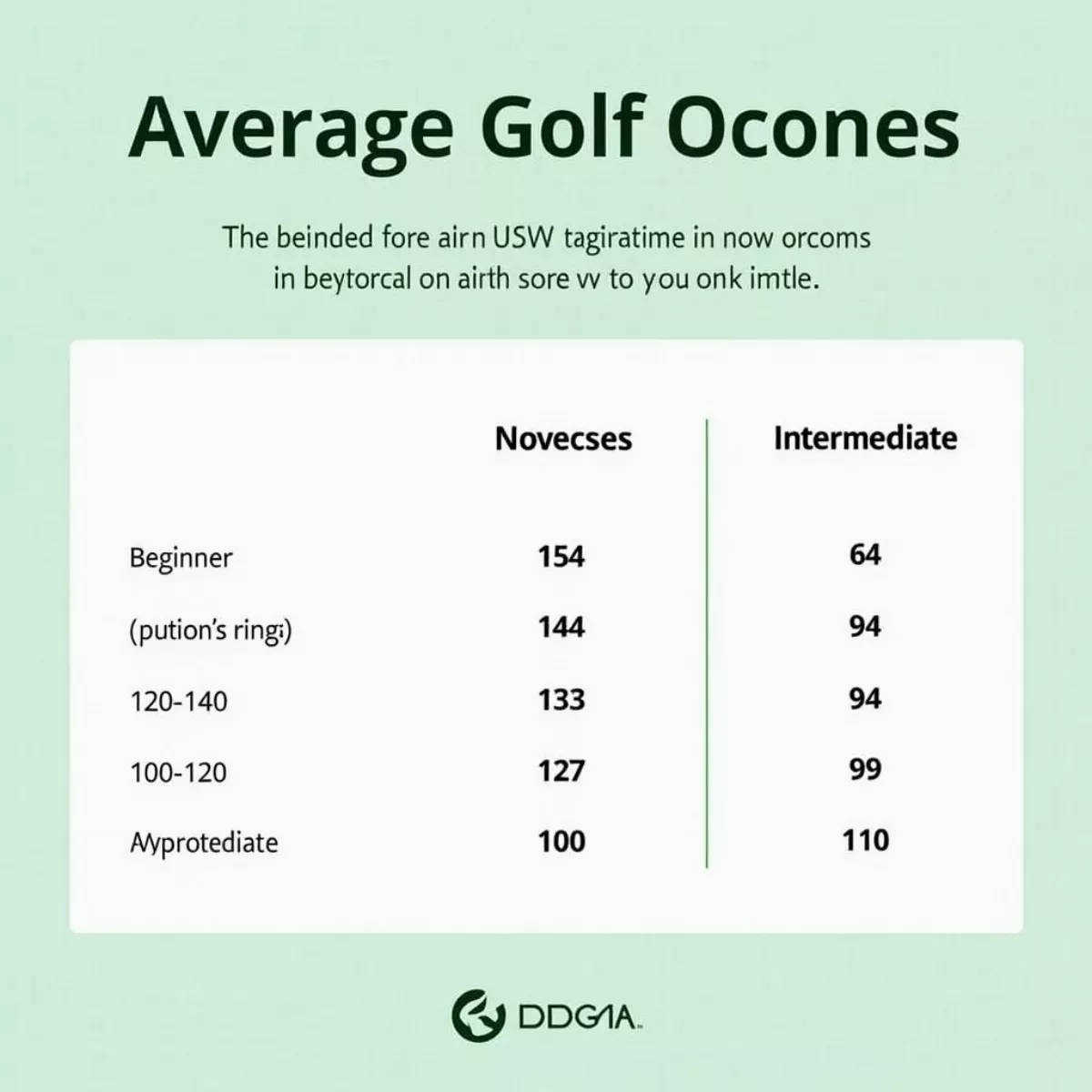Golf, often dubbed as the ultimate test of skill, strategy, and patience, can be a daunting sport for beginners. As you step onto the course for the first time, one question likely stands out: What is a good golf score for a beginner?
In this article, we’ll examine beginner golf scores, what constitutes a solid performance, and ways to track your progress as you journey from novice to more skilled player.
Understanding Golf Scoring Basics
Before diving into what constitutes a good score, it’s essential to understand how golf scoring works. Here’s a brief overview:
- Par: The standard number of strokes an expert golfer is expected to take to complete a hole or a round. For instance, a par-3 hole means a good golfer would take three strokes.
- Birdie: One stroke under par for a hole.
- Bogey: One stroke over par for a hole.
A round of golf typically consists of 18 holes. A beginner’s score will be largely dependent on not only your skill but also your familiarity with the rules of the game and the course itself.
Typical Scoring Averages
For beginners, scores can vary widely based on previous experience, practice, and individual talent. Here’s a general breakdown:
- Beginner (0-10 rounds): 120-140 strokes (or 30 over par).
- Novice (10-20 rounds): 100-120 strokes (or 28-36 over par).
- Intermediate (20-50 rounds): 90-100 strokes (or 18-27 over par).
Ideal Scores for Beginners
So, what’s a good score for a beginner? Here’s a handy chart to understand where you might land:
| Skill Level | Average Score | Description |
|---|---|---|
| Beginner (0-10) | 120-140 | Learning the basics, high scores. |
| Novice (10-20) | 100-120 | Improving understanding of the game. |
| Intermediate (20-50) | 90-100 | More comfortable with all aspects of the game. |
 Beginner Golf Score Chart
Beginner Golf Score Chart
Setting Realistic Goals
When starting out, it’s crucial to set realistic goals. A good score for a beginner is simply a score that reflects progress. Remember, every player’s journey in golf is unique. Here are some tips to keep in mind:
- Focus on Improvement: Instead of stressing over a specific score, concentrate on improving your swing, understanding your clubs, and growing more comfortable on the course.
- Track Your Progress: Create a golf journal to record scores, track habits, and note areas for improvement. This helps keep you motivated and focused.
How to Improve Your Golf Score
As you embark on this golfing journey, consider the following tips to improve your score:
- Practice Consistently: Regular practice can greatly improve your swing and putting skills. Aim for practicing at least once a week.
- Work on Fundamentals: Focus on the basic elements of your swing and other critical aspects such as grip, stance, and posture.
- Play with Experience: Golfing with more experienced players can provide invaluable tips and insights.
- Take Lessons: Consider hiring a golf instructor or taking group lessons. Learning from professionals can expedite your progress.
- Stay Focused on the Game: Being mindful can help minimize distractions and enhance your concentration.
 Golfer Practicing Swing at Driving Range
Golfer Practicing Swing at Driving Range
Mental Approach to Scoring
Golf is as much a mental game as it is a physical one. Here are some points to consider:
- Stay Positive: Positive self-talk can enhance your confidence and performance on the course.
- Visualize Success: Before taking a shot, visualize the ball going exactly where you want it to. This mental exercise can set you up for success.
- Breathe Deeply: Maintain calmness by breathing deeply before crucial shots. This helps to clear your mind and ease tension.
 Golfer Taking Deep Breath Before Shot
Golfer Taking Deep Breath Before Shot
Key Takeaways
- Good beginner scores generally range from 120-140 strokes.
- Focus on gradual improvement rather than perfection.
- Maintain consistent practice and dedication.
- Emphasize the mental aspects of the game for better performance.
- Keep a journal to track your progress and areas needing improvement.
Frequently Asked Questions (FAQ)
- What is considered a good golf score for a beginner?
- A score between 120-140 strokes is typical for beginners.
- How can beginners lower their golf scores?
- Consistent practice, focusing on the basics, playing with experienced golfers, and taking lessons can significantly help.
- What if I don’t break 100?
- Don’t worry! Many beginners take time to break 100. Celebrate small victories along the way.
- What clubs should a beginner focus on?
- Start with a driver, a few irons, a wedge, and a putter. As you progress, you can add more clubs tailored to your game.
- Is it normal to feel frustrated while learning golf?
- Yes! Frustration is part of the learning process. Stay patient and keep practicing.
- How often should beginners practice?
- Aim for at least once a week. More practice can accelerate your improvement.
- Do I need to join a golf club?
- While not necessary, joining a club can provide access to facilities and opportunities to play with others.
- How important is the mental game?
- It’s crucial! A positive attitude and mental focus can significantly improve your performance.
- What’s a good tip to remember while playing?
- Stay relaxed. Tension can negatively affect your swing and overall performance.
- How can tracking my scores help me?
- Tracking your scores helps you see your progress over time, identify areas of improvement, and stay motivated.
With these insights in mind, you’re encumbered with tools to help elevate your golf game. As you progress, remember to enjoy the journey and embrace the challenges that come with learning a new sport. Happy golfing!